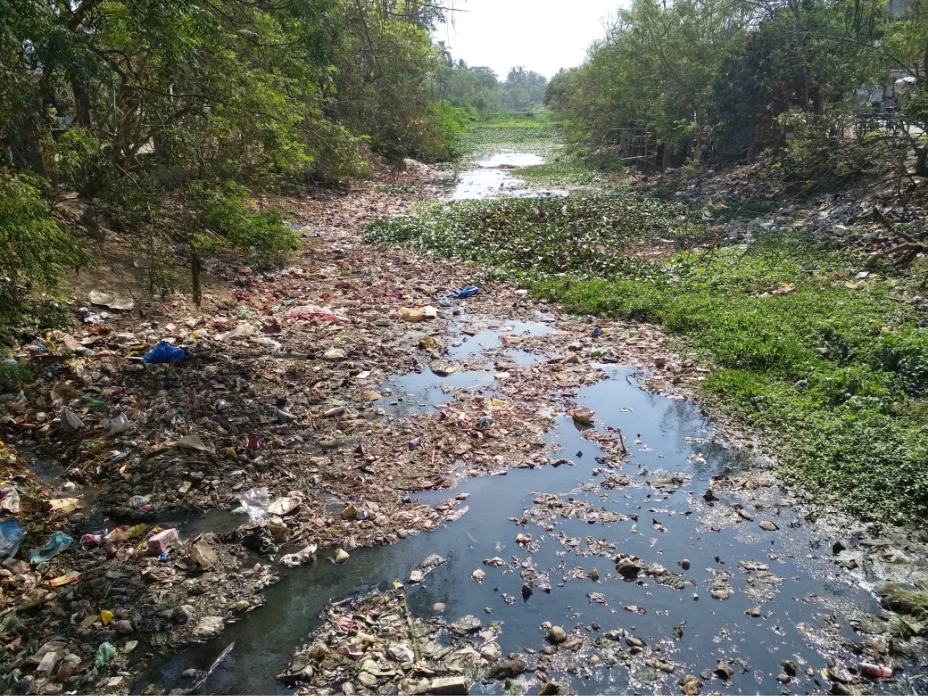Kendrapara: Once the lifeline of Kendrapara district, Gobari river is dying a slow death with plastic and polythene waste burying the water body, a report said Sunday. The story doesn’t end here as regular and rampant dumping of the non-biodegradable waste has hindered the river’s free flow obstructing drainage of water.
Moreover, the plastic waste does not decompose and thereby pollutes the soil. This has also led to an acute drop in groundwater level in the area. The results are quite alarming but the district administration is yet to take steps to clean up the river and ban the use of plastic and polythene which has proved catastrophic for the environment. Sources said Prime Minister Narendra Modi had called for a complete ban on single-use plastic and polythene during Gandhi Jayanti celebrations in 2016. Meanwhile, seven years have passed but little progress has been made in this regard. The National Green Tribunal (NGT) had directed to put stress on waste management and imposed penalty of Rs 24 lakh on Kendrapara Municipality for violation of its order. The order of the NGT has been completed for one and half years. However, the civic body has been lagging behind in waste management.
Several people have opened the outlets of their septic tank to Gobari river and canal as the district administration and the Kendrapara civic body are yet to implement the waste management act in the town. The river is getting buried day by day due to the unabated dumping of waste. As a result, the river is also drying up gradually with water flow declining visibly. A resident Manoj Kumar Singh of Khadianga said waste management is in complete disarray in the areas under the 154- year-old Kendrapara Municipality. Earlier, people used to bathe and do their daily chores in the water of Gobari river and canal. However, both have been filled with tonnes of wastes. With the water being polluted, slightest use of the river water is resulting in skin rashes and diseases among locals.
Moreover, weeds have taken over the water bodies but the Water Resources department is allegedly not keen to clean the river and canal. As a result, the stench emanates from the river during the rainy season. A social activist Sheikh Sabir said the absence of proper waste management has posed serious problems for Kendrapara town.
On an average basis, a common person dumps around 500 gram of biodegradable and nonbiodegradable waste (including plastic and polythene) while 75 MT of waste is generated from the town daily. The civic body had called for ban and boycott of plastic and polythene materials in 2016 but its implementation has been pushed to cold storage due to negligence and apathetic attitude of officials of the district administration and civic body. The lack of action has emboldened people and institutions to use plastic and polythene materials with impunity.
An environmentalist Sheikh Chand said large-scale use of plastic and polythene materials has posed a grave danger to the environment. Stray cattle and dogs are even consuming plastic and polythene waste which is endangering their lives. Rainwater fails to seep into the ground as the plastic and polythene materials do not dissolve in soil. This has led to a decline in groundwater levels in the town. The reckless dumping of waste in the river, if left unchecked, might seriously deprive local residents of drinking water in the coming days. When contacted, executive officer Prafulla Kumar Biswal of Kendrapara Municipality said the sanitation and waste management system in the town is being streamlined and strengthened. Dust bins have been provided in every ward of the town for disposal of garbage while awareness drives are being conducted among the traders and residents to stop use of plastic and polythene materials.
